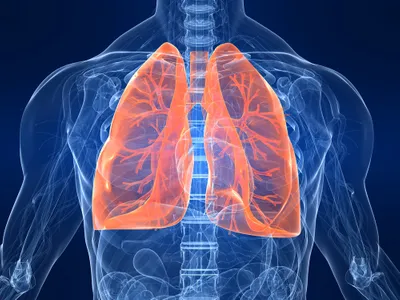Polycythemia vera is a blood cancer that develops slowly over time. It affects the bone marrow and specifically involves the development of too many red blood cells. This overabundance of blood cells causes the blood to thicken and lead to significant complications, including the emergence and growth of blood clots.
Polycythemia vera is a rare disease. Often, it builds over time, taking many years to emerge. However, there are symptoms to look out for and recognizing them can help you and your doctor identify the problem and take appropriate actions. When treated correctly, it can be managed and kept from progressing to a more serious blood cancer like leukemia…
1. Headaches
Polycythemia vera involves the thickening of the blood, a process that can result in the slowing of the flow of blood to various parts of the body. This development can have a significant impact on the way a person feels and acts.
One visible symptom of polycythemia vera are headaches, according to this research from the National Institutes of Health. By reducing blood flow to the brain, painful headaches can become quite common. When left untreated, these headaches can intensify, leading to dizziness, lightheadedness, and overall feelings of weakness. If these feelings become a part of your daily routine, be sure to talk to your doctor.
2. Pressure in the Abdomen
Polycythemia vera leads to the thickening of the blood, a development that can put greater pressure on some of the body’s most important organs. One possible result is the enlarging of the spleen, an organ on the left side of the abdomen.
The result of the spleen’s enlargement, according to the Mayo Clinic, which can result in feelings of significant pressure on the left side of the body. This feeling can initially feel like common bloating, but will eventually become more uncomfortable. If this feeling of pressure in the left side of the abdomen fails to go away, speak to your doctor.
3. Difficulty Breathing
Many different health conditions can cause us to have some difficulty breathing, from the common cold to asthma. Polycythemia vera is also accompanied by shortness of breath and this problem will become more pronounced when the patient is lying down.
According to research from John Hopkins Medicine, this is primarily related to the way polycythemia vera leads to the thickening of the blood, which can reduce the flow of oxygen-rich blood to various parts of the body, including the lungs. If you begin to have difficulty breathing and don’t have a condition that should cause this development, speak to your doctor immediately.
4. Vision Problems
By thickening the blood and thereby reducing blood flow throughout the body, polycythemia vera can cause painful headaches and dizziness. However, research from MPN Research Foundation explains that the process can also affect the vision, leaving one seeing spots or experiencing double or blurred vision. In some cases, it can lead to blind spots in the vision and partial blindness.
This can make carrying out basic activities—from walking to the store, driving to work or looking after the kids—very challenging. If you suddenly develop these kinds of vision problems, be sure to see your doctor immediately.
5. Weight Loss
Although polycythemia vera tends to develop slowly, sometimes over several years, it can have the effect of visibly reducing one’s weight. This may become particularly noticeable in people who used to be overweight or obese and don’t change their diet or exercise routine.
Polycythemia vera may impact weight in several ways. The most likely scenario is that the condition makes one feel uncomfortable, through consistent headaches, difficulty breathing, fatigue, or pressure on the organs. If you experience weight loss and have not made significant changes to your diet or exercise routine, talk to your doctor.
6. Chest Pain
One of the most obvious symptoms of polycythemia vera, which causes blood flow to slow down considerably, is angina, or chest pain and discomfort. By preventing oxygen-rich blood from reaching the heart, polycythemia vera can even lead to heart failure.
It’s unlikely that chest pain and discomfort associated with angina will be the only symptom of polycythemia vera. People who have developed this condition will probably experience other symptoms along with chest pain, including difficulty breathing, headaches and blurred vision.









